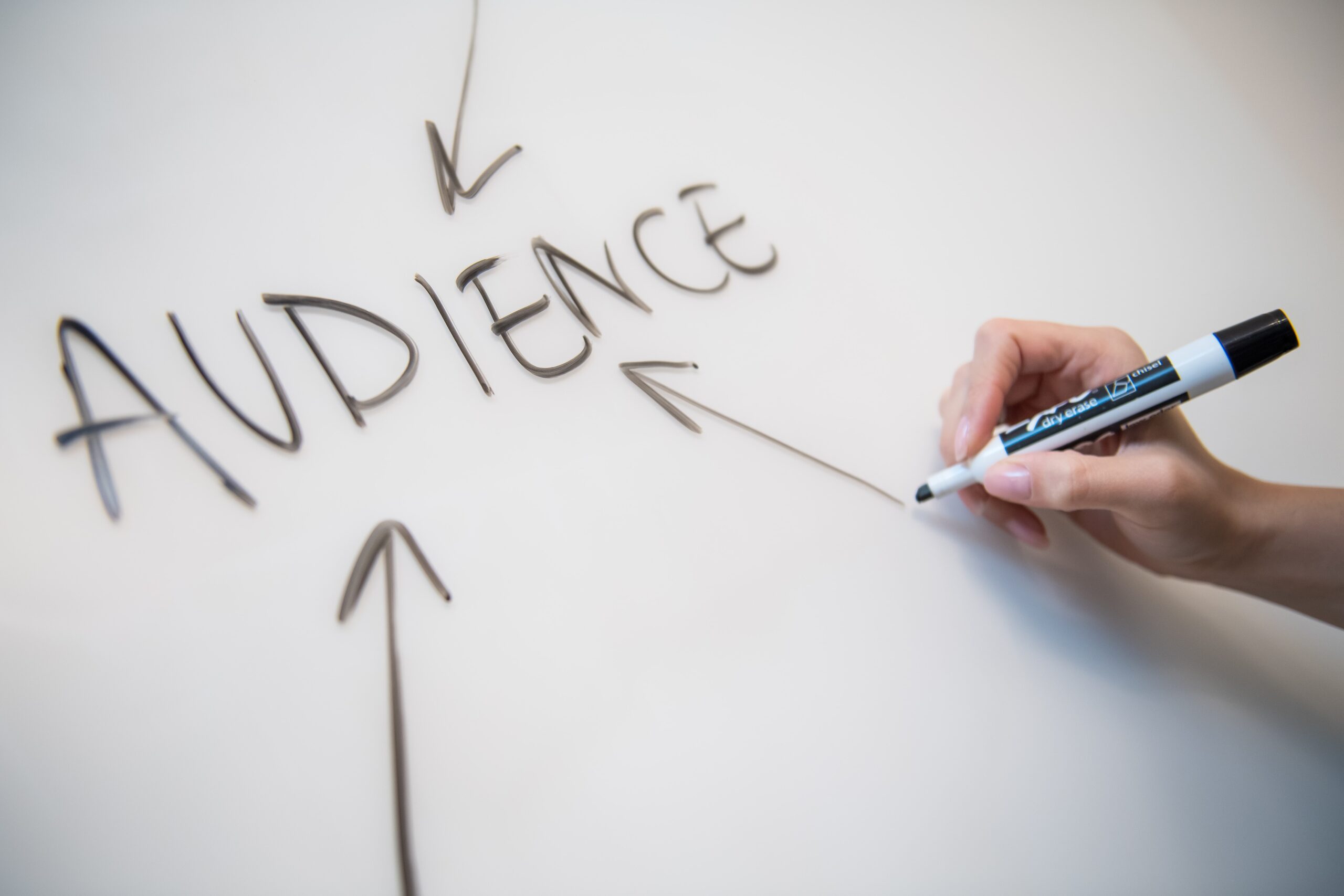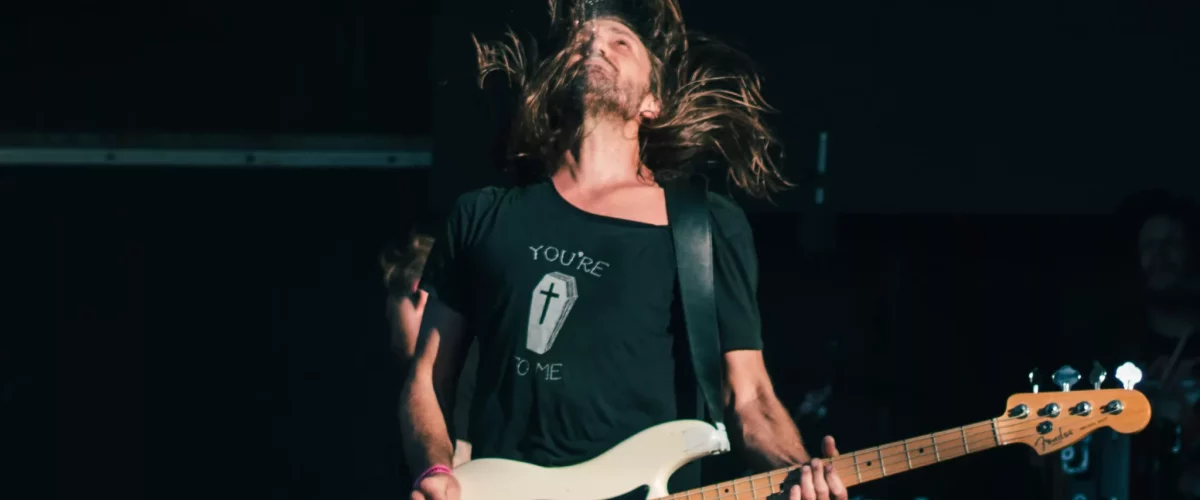Is mass media for event promotion still an option in today’s digital world? Unless you are booking entertainment for your own exclusive pleasure, you want other people to enjoy it as well. Whether your live event is free or ticketed, you want to get people out to experience your it.
Most entertainment events are structured for the organizer or promoter to make money from the concert or another type of entertainment function. They do this through ticketing fees and profits made through serving food or drinks at the event. Making the show a financial success requires making people aware of the event and motivating them to purchase tickets (ticketed shows) and/or show up at the event itself.
Attracting Attendees to Your Live Entertainment Event: Remember the Audience

The answer is a lot of people! Unless they are fans of the particular celebrities, acts, or entertainers booked for the show
Event Promotion Tip: Don’t waste your promotion budget trying to target everyone in your drawing area. Concentrate on people who:
-
-
- Attend live entertainment events.
- Are fans of the entertainers involved, or are at least fans of the music genre included if it’s a musical event.
-
Your ability to do that depends on the marketing channel you use to reach your audience. Some channels allow greater audience segmentation for targeting than other channels. As a rule, online advertising and social media channels provide a lot more segmentation than offline channels.

Mass media marketing foci are “offline” channels. There are other offline channels as well, but today we will address mass media channels for event promotion. Mass media includes television, radio, and print media advertising outlets.
Mass Media for Event Promotion Outlets
-
-
- Broadcast Television
- Cable Television
- Broadcast Radio
- Newspaper
- Magazine
- Billboard
- Posters and Flyers
-
Whom Are You Targeting with Your Event Marketing?
Before the decision to use specific channels, you will need to understand the audience you are targeting for your event. The more you know about them and the media they consume, the better you can determine the specific marketing channels you will use to promote your event. It may involve research on your part as to the characteristics of the audience you want to target and where they consume their information. Fortunately, if you are booking a well-known entertainer, there is probably a lot already known about the fans of the entertainer.
Armed with that information and your marketing budget you will be able to determine whether mass media for event promotion is right for your show.
To Summarize: The marketing channels you choose to promote your concert or show will depend on two major factors.
-
- The people you believe will be most likely to attend your event, i.e., your target audience.
- The marketing budget you have to both research and market to your target audience.
Mass Media Include Both Broadcast and Narrowcast Channels
In most cases, there is both a widely cast distribution network and a more limited one in scope when it comes to mass media. For example, broadcast television versus cable television.
For concert promotion using mass media, a narrowcast approach is a far better expenditure of your advertising dollars.
Using Television for Event Promotion

When thinking about television advertising, remember that broadcast stations are not your only possibility. Often cable television distributors can provide more targeted advertising at a significantly lower price than broadcast media.
Distributors can put your ads on different channels that are watched by your targeted audience. If one of your target market segments is prone to watching the news, how about placing your ads on CNN, MSNBC, and Fox News? If other segments follow other types of programming, it’s easy for a cable company to put your spots on several cable channels that cater to that audience.
Pros and Cons of Mass Media Channels for Event Promotion
Broadcast Television:
Pros:
-
-
- Largest reach capabilities especially with older demographics
- Provide the capability of delivering an impactful message.
- Great for creating awareness of an event.
- Expensive in comparison to other marketing channels.
-
Cons:
-
-
- Broad reach makes it Inefficient for targeting a smaller area of the media market
- Targeting is broad with targeting limited to viewer demographics of certain kind of programming.
- With DVRs, viewers often skip advertising.
- Cannot quantify the impact of the medium for your events. All you have is ratings for the time period your ad was shown.
-
Cable Television:
Pros:
-
-
- Less expensive than broadcast television
- More programming options for targeting your audience
- Ability to target a smaller geographic area.
-
Cons:
-
-
- Penetration varies by the market with more households turning to streaming channels
- Very little local programming, if any, is available.
- Smaller audiences and segmented channels may require a higher frequency of ads to reach brand awareness.
-
Using Radio for Event Marketing

Radio reaches more listeners than any other form of media, making it the most popular way to reach your target audience and sell tickets. Radio stations can be great sponsors and partners for an event that has the same target audience as their listeners.
Also, radio DJs love to help promote live music events. If you provide them with some great content like audio and video clips from past performances by artists who have played at your festival or venue, then chances are good that they will be willing to work with you for free or cheap advertising, as well as help sell tickets for future shows if needed.
Pros:
-
-
- The number of different stations and formats allows you to target specific demographic and psychographic segments.
- Can function as an entertainment event partner trading mentions, ticket giveaways, and other forms of promotion in return for advertising, acting as emcee, and exclusive partner designation.
- Often a group of stations is under one umbrella in the area you are targeting.
- Depending on the entertainment for the event, the station may play the artists’ recordings more frequently leading up to the event and do artist interviews, etc.
- Less expensive than television.
-
Cons:
-
-
- Packaging more and more commercials into the same commercial break creates a lot of message clutter.
- Promotion often requires more than one radio station to reach the targeted audience due to fragmentation and signal reach.
- Larger reach may mean you are wasting dollars if trying to target a smaller area within the media market.
- Difficult to measure impact.
-
Using Newspapers and Magazines for Event Marketing

If you’re targeting an audience interested in your type of event, then it may be more effective to place your ad near articles about similar kinds of events. If your event is targeted to a localized population, use local publications rather than national to reach your audience.
Newspaper:
Pros:
-
-
- Readers are actively engaged with the medium that is considered a trusted source by its loyal audience.
- Effective in targeting smaller communities and older audiences.
- Inserts can be targeted to specific zip codes.
- A variety of ad sizes is available.
- Often will publish a story (earned media) about your event. Of course, you may need to write it for them.
-
Cons:
-
-
- Limited and declining readership.
- Won’t reach a younger audience.
- Advertisements may be lost among many others.
- Limited distribution in many areas.
-
Magazines: The types of magazines you might use are those that describe events happening your event’s geographic area, travel magazines, and magazines devoted to a specific music genre in the area you are targeting. Look for local magazines with readers who match your targeted audience.
Pros:
-
-
- Variety of advertising formats all the way to a full-page color ad.
- Readers are already interested in the subject matter, so it makes targeting easier.
- Monthly or quarterly publications mean they are relevant for a longer period, meaning repeated exposures from one magazine.
- Better targeting capabilities around genre, gender, household income, education, travel plans, etc.
-
Cons:
-
-
- Often too expensive for a single entertainment event. Better use is for venue branding or multiple event listings.
- Long lead times before publishing. For example, a quarterly event magazine may need 4 to 8 weeks or more lead time. Your event in August may require submitting copy in March since it will be published prior to the 3rd
- Can’t measure the impact.
- Ineffective at reaching a younger audience that uses online channels for such information.
-
Using Billboards for Event Promotion

In a 2013 Arbitron National In-Car-Study, 58 percent of billboard viewers aged 18 or older learned about an event they were interested in attending. (source)
Portable roadside signs are an option as well if you have a good place to put them. While most only permit text, some have a flashing directional arrow. If you have a great location and a big budget then a mobile LED video wall can be an option as well.
Billboards:
Pros:
-
-
- High reach and visibility
- People look at them.
- Static boards provide an always-on message so every passerby sees it.
- Digital boards offer the ability to change messaging frequently.
- Large format is impactful.
- Great for rural areas.
-
Cons:
-
-
- No targeting capabilities
- Requires longer-term commitment for a campaign. Digital my allow for shorter periods.
- Digital boards may advance in seconds to another advertiser.
- Longer term boards will weather becoming faded and worn.
- Placed among other boards may dilute the impact of your message.
-
Using Promotional Flyers and Posters to Promote Events
Flyers and posters are effective ways to promote your music event. You can design them yourself or hire a professional designer to do it for you. Posters are larger advertisements that are more artwork than flyers. They may be anywhere from 11 X 17 to as large as 24 X 36 in certain cases. Posters are for display at various businesses and venues in places where your target audience visits. Lately, some posters also become NFTs or Non-fungible tokens. Posters are usually full color requiring a commercial printer to use a four-color press to print them.
Flyers may use only one color printed on 81/2 by 11-inch colored paper to give them some appeal. You can leave flyers on business counters for customers to pick up as well as hand them out at shopping malls or other places where your target audience gathers.
Posters:
Pros:
-
-
- Attracts attention because of its graphic design properties.
- Long lasting as long as it’s not removed.
- Can be placed in places where your target market is located.
-
Cons
-
-
- Relatively expensive considering the need for graphic design and 4-color printing
- Low quantity 4-color printing results in an expensive per poster cost.
- Need a street team to distribute them and places to accept them being hung on their premises.
-
Flyers:
Pros:
-
-
- Cheap to produce allowing a large distribution.
- Can be printed on any home or office printer.
- They can be left on store counters (with permission) or handed to targeted people.
-
Cons”
-
-
- Need a street team to distribute them to multiple places and people
- Paid street teams are expensive to use.
- Getting enough volunteers to distribute them can be difficult.
-
No matter what medium or marketing channel you use it comes back to defining the people you want to reach (Target Audience), determining where they are likely to see your ads, what promotion channels you will use, and creating marketing assets that will attract their attention and engage them enough to seek more information about your live entertainment event.
It all comes down to whom you want to market to and how to reach them in a way that leads to them taking the action you want. Your event promotion budget will require you to make choices as to the best use of your marketing dollars.
Related Posts:
7 Event Marketing Strategies for Your Next Concert Promotion





